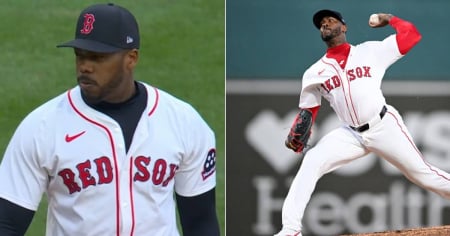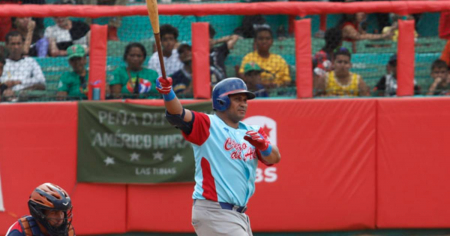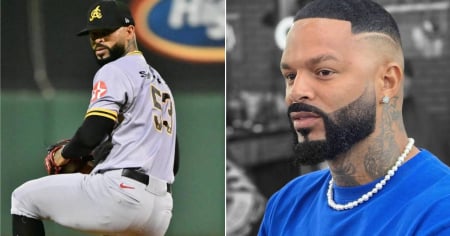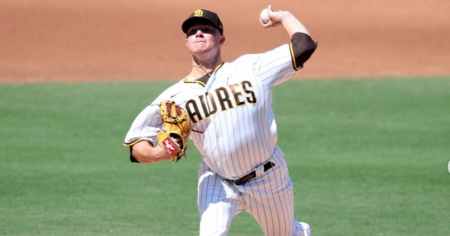What was supposed to be a tribute interview for a legend of Cuban baseball ended up as a crude act of television censorship. Former pitcher Omar Ajete, regarded as one of the best left-handers in the history of baseball on the island, was abruptly silenced during a live broadcast of the III Elite League of the sport.
From the Capitán San Luis stadium, Ajete was responding to a question from journalist Yoan Luis Piedra when he dared to mention an uncomfortable truth: the deplorable conditions faced by retired athletes.
"The service here is poor in every aspect. We had a fuel card and it's difficult to refuel," he managed to say before they cut off his microphone, removed him from the shot along with the interviewer, and abruptly ended the conversation without any explanation.
The scene was as abrupt as it was revealing: in Cuba, speaking one's mind remains a risky act. The sudden interruption highlighted the state's intolerance towards any criticism, even when it comes from a respected figure in sports.
Silence and manipulation
So far, neither the authorities from the Cuban Institute of Radio and Television (ICRT) nor from INDER have commented on the incident. It has also not been disclosed who made the decision to censor the former athlete during the live broadcast, although many social media users have no doubt in pointing out that it was a direct order from the control room.
The gesture confirms, once again, that practicing sincere journalism in Cuba is practically impossible, even in areas like sports, which have traditionally been used as a showcase for official propaganda.
Reactions on social media
After the embarrassing episode, social media was flooded with messages of support for Ajete, who retired with over 100 victories and was part of champion teams in the Olympic Games and World Championships.
The interview's editing also reveals the regime's contradictions: athletes are celebrated when it serves a political purpose, but they are silenced as soon as they deviate from the official narrative.
More false than the regime's hopes
In February, amidst increasing reports regarding the difficult situation of various sports legends, the Cuban government denied that any of them are neglected and asserted that they receive institutional support.
During his appearance on the government-backed program Mesa Redonda, the national commissioner for Athlete Care, Wilmer Lewis Calvo, asserted that the country has structures dedicated to supporting them and denied that these former athletes are abandoned, although the reality suggests otherwise.
"Our glories are neither forgotten nor dead. We fulfill Fidel's purpose of keeping them active and present in society," declared Lewis Calvo.
The official acknowledged that there are areas of dissatisfaction and that there may be cases of former athletes facing difficulties, but insisted that any reported situation will be addressed. "If someone is going through a tough time and we are not aware of it, we will seek a solution through any means by which we are informed," he assured.
The statements came in the context of growing discontent on social media, where Cubans have reported the precarious conditions in which some legends of national sports live, many of them lacking access to basic resources.
Frequently asked questions about censorship of Omar Ajete and the situation of athletes in Cuba
Why was Omar Ajete censored during a live interview?
Omar Ajete was censored for mentioning the deplorable conditions faced by retired athletes in Cuba. During a live broadcast, Ajete commented on the poor care they receive and the difficulties in obtaining fuel, which resulted in his microphone being turned off and the interview being abruptly cut short.
What has been the response of the Cuban government regarding the censorship incident involving Ajete?
So far, no authority from the Cuban Institute of Radio and Television (ICRT) or INDER has commented on the incident. Censorship has been seen as a demonstration of the regime's intolerance towards any criticism, even when it comes from respected figures in sports.
How did social media react to the incident involving Omar Ajete?
Social media was flooded with messages of support for Omar Ajete. Users expressed their outrage over the censorship and highlighted the regime's contradictions, which praises athletes when it serves political purposes but silences them when they criticize the country's reality.
What does the Cuban government say about support for retired sports heroes?
The Cuban government denies that sports glory is being neglected and insists that they have institutional support. However, there are growing reports about the precarious conditions in which some sports legends live, contradicting the official statements.
What impact does censorship and manipulation have on sports journalism in Cuba?
Censorship and manipulation hinder the practice of honest journalism in Cuba. This type of control highlights the lack of freedom of expression and the use of sports as a tool for official propaganda, limiting transparency and open debate about the reality of athletes and their conditions.
Filed under:






